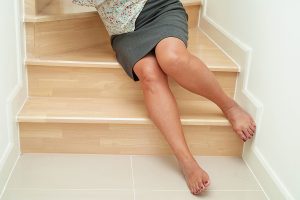Premises Liability Can Happen To St Petersburg Homeowners Too
 Michael Babboni
Premises Liability
Premises liability is a legal concept in Florida law that requires a property owner to take all reasonable precautions to ensure that the property itself is safe for visitors. The most well-known case of this right now is the tragic accident in Orlando where, on the night of March 24th, a 14-year-old boy fell to his death at ICON park.
Michael Babboni
Premises Liability
Premises liability is a legal concept in Florida law that requires a property owner to take all reasonable precautions to ensure that the property itself is safe for visitors. The most well-known case of this right now is the tragic accident in Orlando where, on the night of March 24th, a 14-year-old boy fell to his death at ICON park.The cause has already been ruled as the boy being nearly 100 pounds over the recommended safety weight of the ride but being allowed on regardless and placed in a special seat designed to ignore normal restraint safety requirements. It’s a case of a property owner deliberately ignoring documented safety warnings, resulting in death.
However, it’s not just businesses that are responsible for the consequences of premises liability. Homeowners are also accountable, and they have their own set of common premises liability hazards to watch out for.
Unrestrained Dogs
This is one of the most common causes of premises liability for homeowners. By law, dogs in Florida must be leashed in public spaces, but there’s no such requirement inside a homeowner’s property. However, a dog must be confined to a homeowner’s property.
For example, one woman in Florida allowed her dog to remain unleashed in her front yard. Technically, this was her property, so she had the right to do so. However, when a nearby pass car made a loud noise, this startled the dog, who ran at a pedestrian walking past the house and bit him. Any attack by a dog on the property is considered premises liability, especially if that attack was easily preventable by restraining the dog.
Slipping & Falling
Another common reason for premises liability on residential properties is a “slip and fall,” usually due to maintenance neglect. Stairs may become uneven as the foundation of a house shifts, causing the steps to no longer be level and thus less stable to walk on. Normally, this construction flaw would be repaired to ensure level steps and safe traversal.
However, if a homeowner decides it’s not worth the expenditure to repair the steps and someone walks on them, falls, and becomes injured, that is premises liability. The homeowner was aware of a fault in the steps but deliberately chose to ignore it, resulting in an injury.
Poor Maintenance
Other aspects of a home must also be maintained for smooth functioning and safety. Electrical faults, for example, should be addressed once they are known. If a light over the stairs no longer works, and someone falls due to being unable to see while climbing or descending the steps at night because of a malfunctioning light, that is premises liability. Similarly, if an electrical outlet is faulty, but a homeowner chooses not to repair it, and someone receives an electrical shock while trying to plug in a device for recharging, that is also premises liability.
Any defect or flaw in a home that can present a risk of injury to others knowingly ignored by a homeowner makes that homeowner accountable. Talk to a premises liability lawyer if you’re injured by such neglect and find out what to do next.
